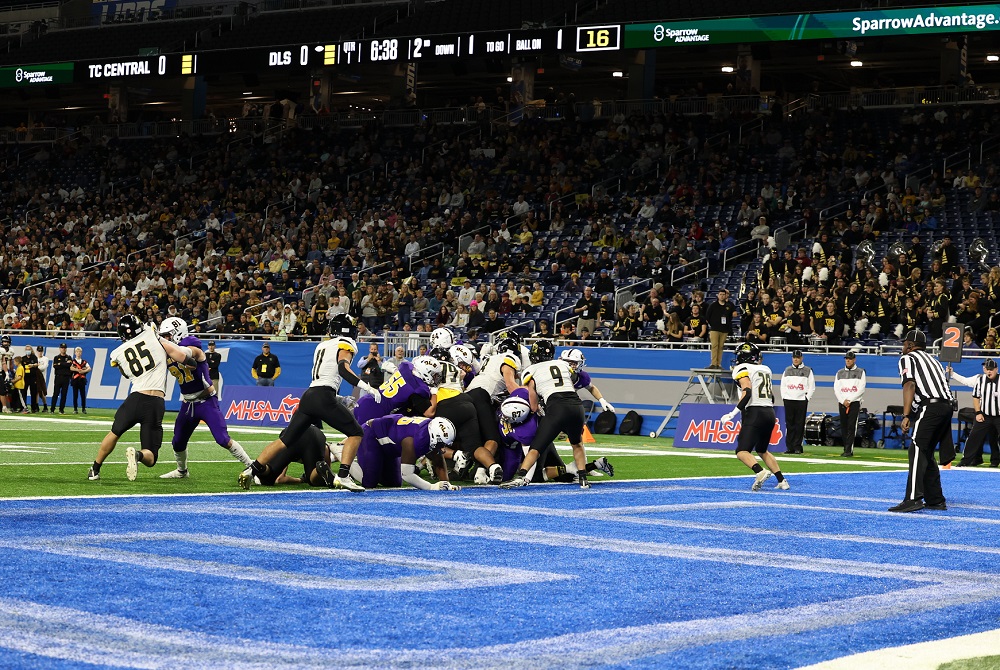
Be the Referee: Field Goals
September 24, 2014
This week, MHSAA assistant director Mark Uyl explains a rule unique to high school football – what results at our level after a missed field goal attempt.
"Be the Referee" is designed to help educate people on the rules of different sports, to help them better understand the art of officiating and to recruit officials. The segment can be heard on Mondays, Wednesdays and Fridays during the school year on The Drive With Jack Ebling on WVFN-AM, East Lansing.
Below is this week's segment - Field Goals - Listen
Today we are going to talk about one of the most unique rules to high school football, and it deals with field goals; in particular, what happens after a missed field goal.
Under high school rules, field goals are really treated just like punts. The only difference for the kicking team is that you can score three points if the ball goes through the uprights.
On a missed field goal that comes up well short, let’s say at the 5-yard line, and the ball either comes to a rest or rolls out of bounds at the 5, the new offense will take over first down and 10 at that 5-yard line. The only time the offense would take over at the 20 is if that missed field goal does break the plane of the goal line.
Never under high school rules would the team take over where the ball was kicked or originally snapped.
Past editions
Aug. 25 - Targeting - Listen
Sept. 4 - Concussions - Listen
Sept. 11 - Pass Interference - Listen
Sept 18 - Tackle Box - Listen

Be The Referee: Play Clock
By
Sam Davis
MHSAA Director of Officials
August 30, 2022
Be The Referee is a series of short messages designed to help educate people on the rules of different sports, to help them better understand the art of officiating, and to recruit officials.
Below is this week's segment – Play Clock - Listen
There’s a new rule in football this year that provides the offense more time to draw up a play and prepare matchups when the defense commits a foul.
In the past, if the defense committed a foul, the play clock would be set to 25 seconds, potentially changing the approach by the offense entirely.
Under the change, when the defense or receiving team commits a foul, the play clock will start at 40 seconds, giving the offense an extra 15 seconds to prepare their scheme for the next play.
For all other administrative stoppages, including fouls against the offense or kicking team, the play clock will be set to 25 seconds when play resumes.
Previous Editions:
Aug. 23: Intentional Grounding Change - Listen

